Community, Local Community Action
Seventy Years of Eco Living Strengthens Why Living Sustainably is Crucial
In this story, Leonie shares how seventy years of eco living strengthens why living sustainably is crucial. Find out her recollection of the history of waste through the decades and how her passion for taking care of our local environment helps our local community. This is neatly rounded up with actionable, simple tips to use everyday.
Growing up in the 1950’s and ’60s in the Sydney suburb of Yagoona, Leonie’s family spent many holidays at Bateau Bay on the NSW Central Coast.
Now living in the area with which she has a close life connection, her much-lived experience and knowledge about social and environmental changes in the last 70 years give us a personal insight into today’s living.
I spoke with Leonie at her place in March 2021.
Personal History of Waste over Seventy Years
Leonie has actively picked up rubbish over the last 20 years; however, the importance of removing waste from the natural environment started in her childhood.
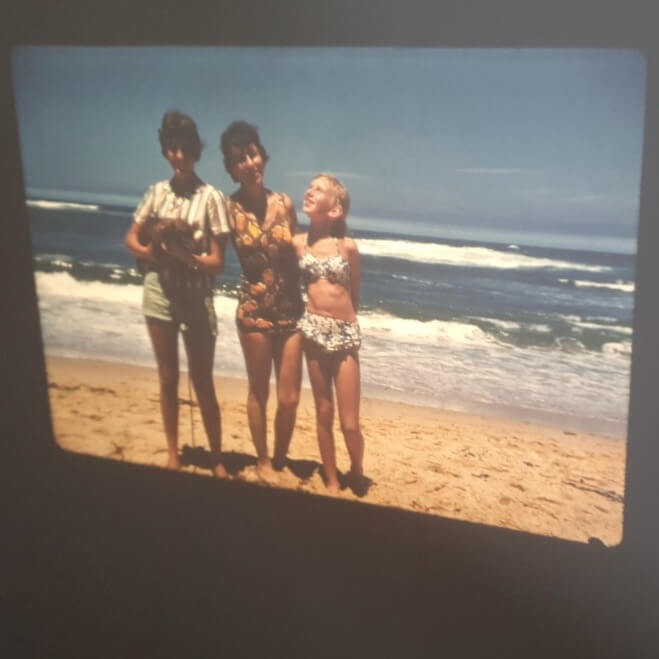
As a child, Bateau Bay beach was the family destination every school holidays. Leonie remembers her Mum making and bringing lunches to the beach so as kids, they could stay at the beach all day. The first time she noticed rubbish was in the late ‘50s/ early ‘60s when Bateau Bay Lodge – also known as Elonora Camp at the northern end of Bateau Bay beach – had a kiosk.
The rubbish on the beach came from bought icecreams, Heart, packaged in individual paper wrap.
There wasn’t the extent of packaging that there is now. The types of waste have morphed and increased over the decades.
In the 1950’s, walking to the corner store to buy a little paper bag filled with lollies was an absolute treat. Finding a glass bottle on the way to the store – nothing was plastic nor aluminium – was like a child’s treasure. After handing the empty bottle to the local corner shop owner, Leonie remembered receiving threepence in return. As a child, this was a considerable amount of money and easily spent on more lollies!!
Coffee shops and cafes were unheard of back in the ’50s and ’60s. Everyone owned a Thermos to take with them wherever they went.
Connecting with the Local Community & the Natural Environment
Feeling so privileged to be able to go into the absolute wilderness and truly unspoiled places, Leonie’s love of bushwalking and hiking in remote areas has given her the chance to feel and see the beauty of “the way it’s supposed to be”.
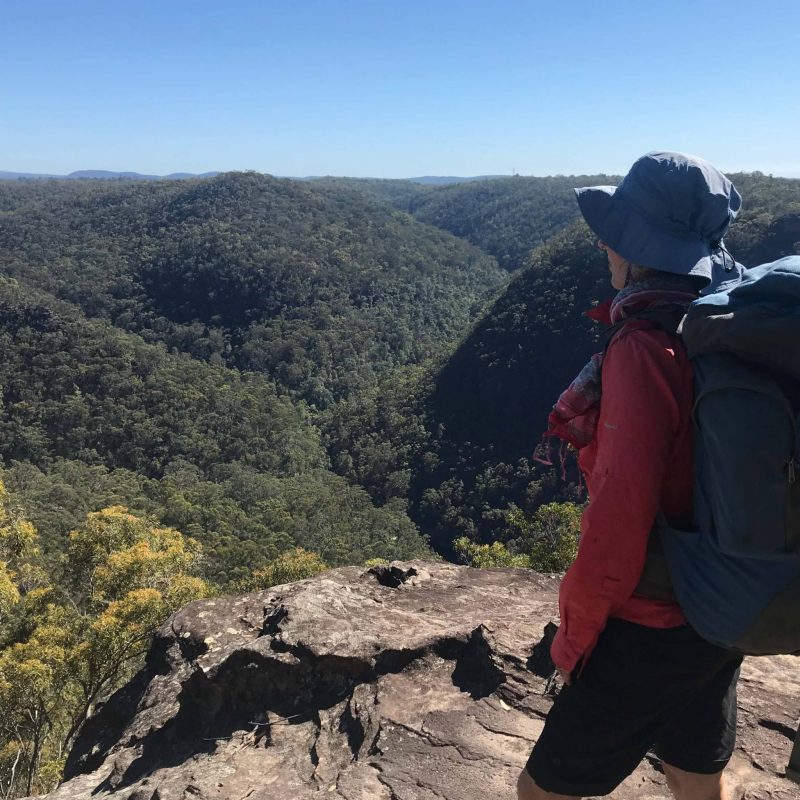
When not adventuring in the Australian bush, the nature lover loves to get grubby in the backyard garden. Her front yard gardening becomes a place of natural and spontaneous community conversations.
From these kerbside and everyday conversations, Leonie discovered “there are a lot of people who are ready to make the change but just don’t know how to do it or where to start”.
The Bateau Bay resident feels fortunate to know basic sewing and mending skills, gardening and has a love of cooking using whole ingredients from scratch. These are valuable for living sustainably, and luckily, there are many places to help us learn these skills.
Leonie’s words of encouragement are that “one person can make a massive difference. It is do-able”. Her testament to this started when she picked up rubbish in her local area.
Rubbish is Unsightly
The ugliness of rubbish in the natural environment was the compelling reason for picking up the waste. Leonie has a theory that “rubbish collects rubbish. The more rubbish we have around our community, it sends a message to others that nobody cares”.
To turn littering and waste dumping around so that it instead becomes the norm for people to either reduce their rubbish or take their rubbish with them is the ideal. Research by the NSW Environment Protection Authority (EPA) validates that rubbish does collect more rubbish. Read Things you Should Know about Litter and Litterers here.
“If we don’t do anything about our environment and we leave it, we can be sure of one thing only…it will get worse and worse, and it becomes so big of an issue that nobody knows where to start, and it gets out of control.”
Feeling annoyed and frustrated by the amount of rubbish littered in her travels and local area, any negative feelings about the waste were channelled into positive energy. Switching from a mindset of blame and other people’s problems thinking into doing something about picking up others’ rubbish helped Leonie think about things differently.
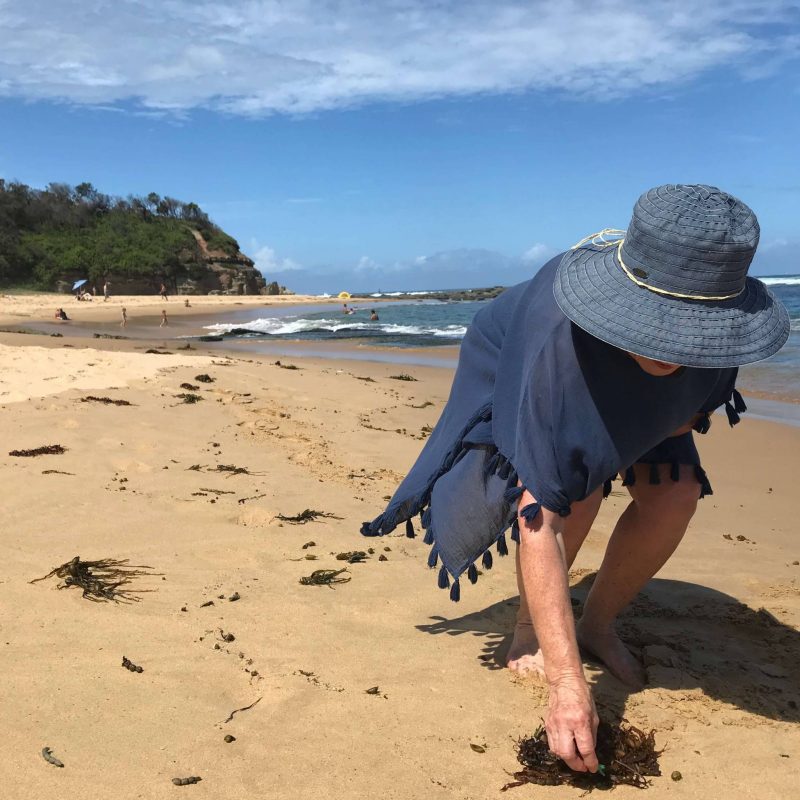
Leonie defines rubbish as “things that shouldn’t naturally be there that are taking away from the natural flora and fauna”. Dedicating only as much time as she has to pick up litter, others openly admire and thank her for keeping their community free from rubbish.
With over seventy years of experience, changes to packaging, greater availability of food & products, the norm of eating out more, a greater population and the increased choice to buy prepared snack foods and disposable items have had the most significant impact on the amount of rubbish and waste.
Types of Waste Found
Over the last 20 years, Leonie has seen how the types of waste differ between water-based waste – marine debris – and land-based waste.
Marine Debris
The marine debris pollution includes cotton buds, fishing line, styrofoam, surfboard foam, balloons – and the string they’re attached to – cigarette butts and increasingly teeny bits of waste. The ongoing issue of “plastic fishing line and the damage it does to our environment, birds and sea life is just dreadful”, says Leonie.
There’s also been an increase in microplastics in tow decades – when the smaller pieces of plastic have broken up from larger pieces. Leonie explains the problem with microplastic is that “there was one (piece of plastic), now there are lots of little bits. Microplastic is when it breaks up into more pieces and (is) even more dangerous than if there was one plastic bottle around the ocean”.
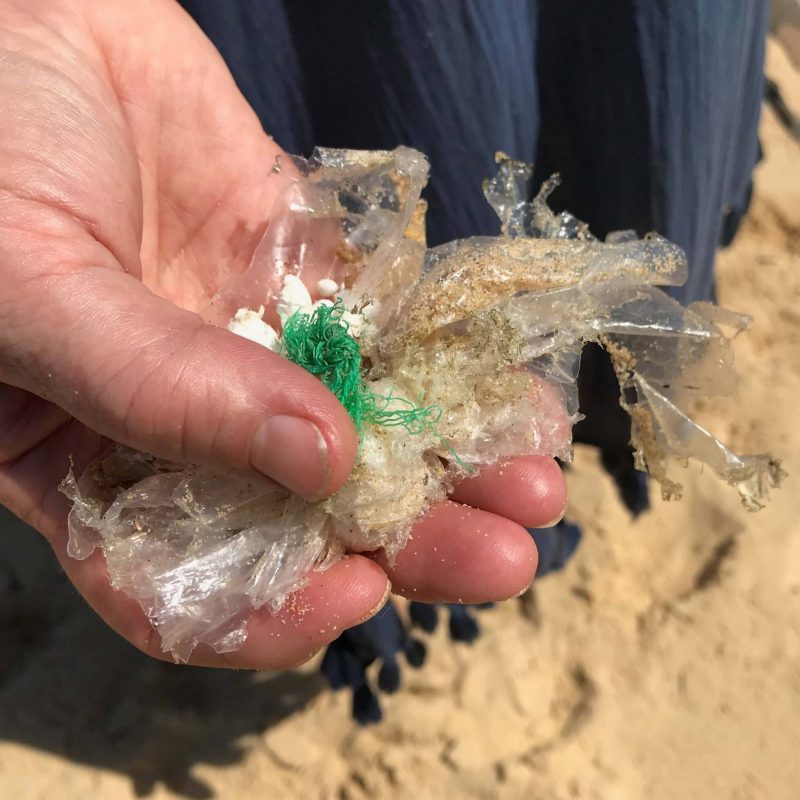
Land Litter
The land litter matches up with people who immediately use the area where the rubbish is. Types of waste include chip packets, bottles, cigarette butts, lolly packets, straws and coffee cups. Then there’s the insidious bits of plastic and waste found, such as bread tags, bottle tops, cigarette butts, receipts, price tag plastic strings. These small bits of rubbish are also evident when participating in clean up campaigns such as Take 3 for the Sea.
Surprise Waste Finds
The biggest things the Bateau Bay resident has removed from her local natural environment are chairs, wheel rims, old gas bottles and half-broken surfboards. Unfortunately, as a one-person picker upper-er, she could not carry the lounge suite up from the beach!
Leonie is passionate about keeping her local community clean. This passion spreads wherever she goes when bushwalking, travelling, hiking and getting out and about. She lives by the philosophy of leaving it “cleaner than how I found it”.
Top Simple Tips
- Start with where you live.
- Start with one thing. This one thing may lead to the next and the next.
- Take reusable bags to the shops. If you forget your bags, pop your things loose in the car until you return home.
- Always take a rubbish-collecting bag and gloves with you, ready to pick up litter.
- Pop the collected waste in the nearest bin or take it home to your bin
- Learn and value the art of repurposing before discarding
- Ask people you admire for help – doing and learning from each other is so much easier and more invigorating.
- Get in touch with your local council about public bin collection, green space accessibility, maintenance, and the picnic areas. They can take action more quickly than the State and Federal governments.
- Show others the ease of doing these simple tips by embedding them in your everyday living.
Some links in this section are affiliate links, meaning I may receive a commission if you choose to purchase. Thankyou!
A passion for the environment for now and future generations is Leonie’s absolute driving motivation. Leonie’s experiences, insights and passion for contributing to a healthy, clean, and livable place is exceptional. Positive thinking and actions start with one person to benefit our health and the health of our planet.
“we’ve become far too complacent about the planet – that it will always be there for us to use, deplete and throw away. But we can all make a difference by starting small today”
I hope her story has inspired you to be the spark in your community to promote a cleaner environment.
Dedication
Leonie is my Mum. I’ve seen her various passions and enthusiasm grow through my time and her sustainable actions have played a huge part in influencing my own ideals and actions.
Find Out More…
Related stories about water, waste and plastic from French for Tuesday:
Related Links
Useful websites found elsewhere:
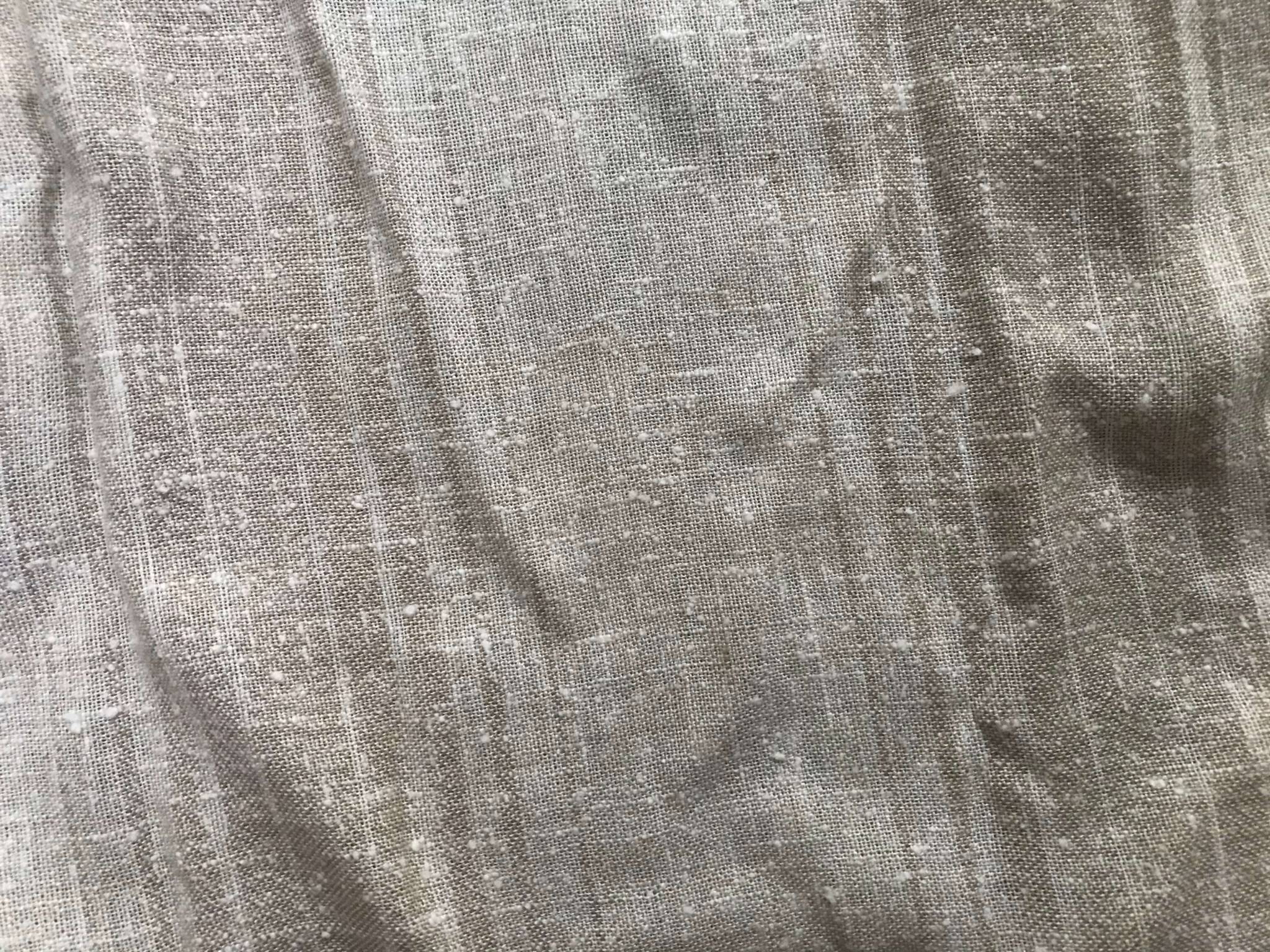
Articles and Stories
Inspiring stories about people & planet helping you live locally & sustainably everyday.


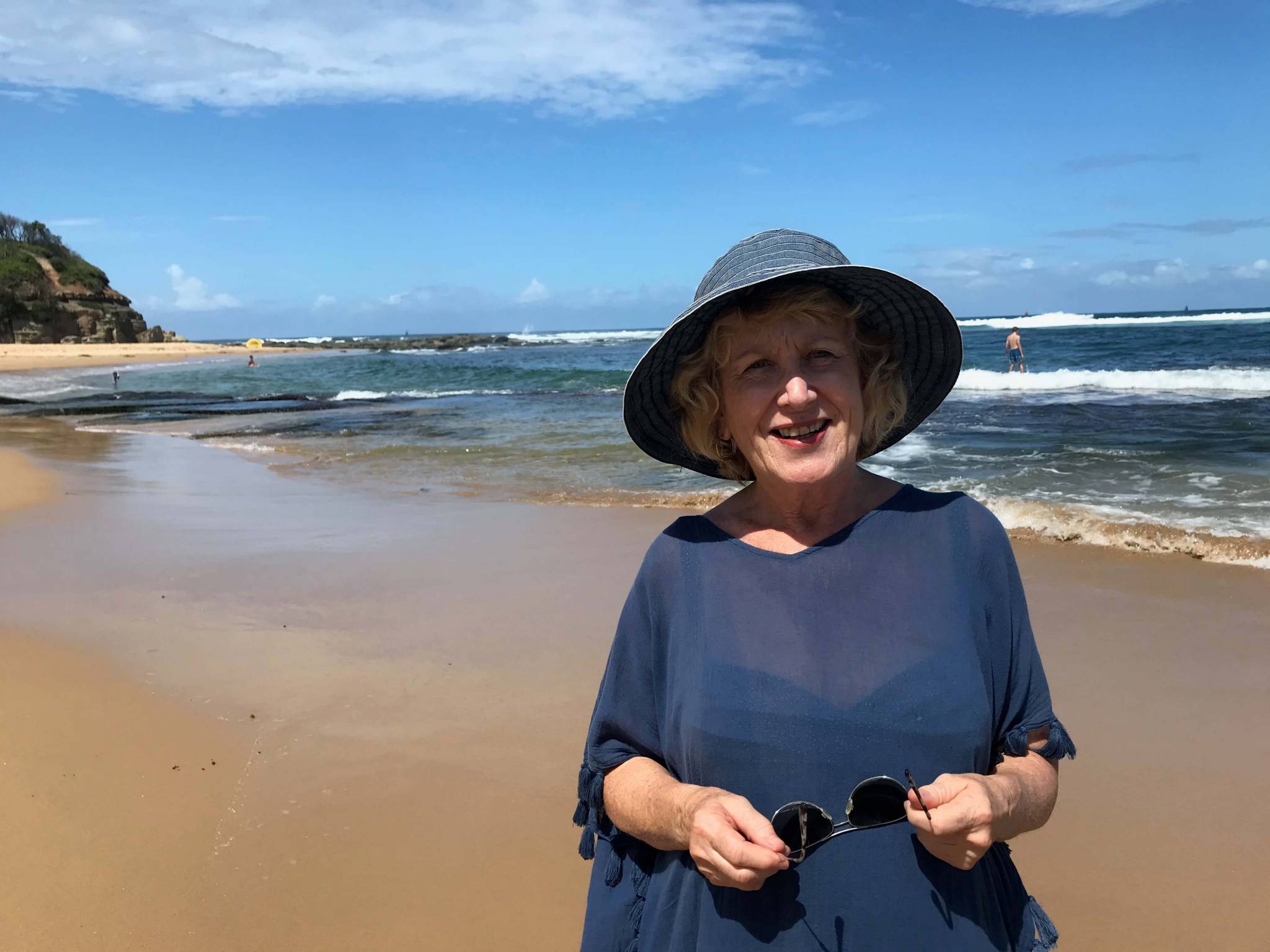
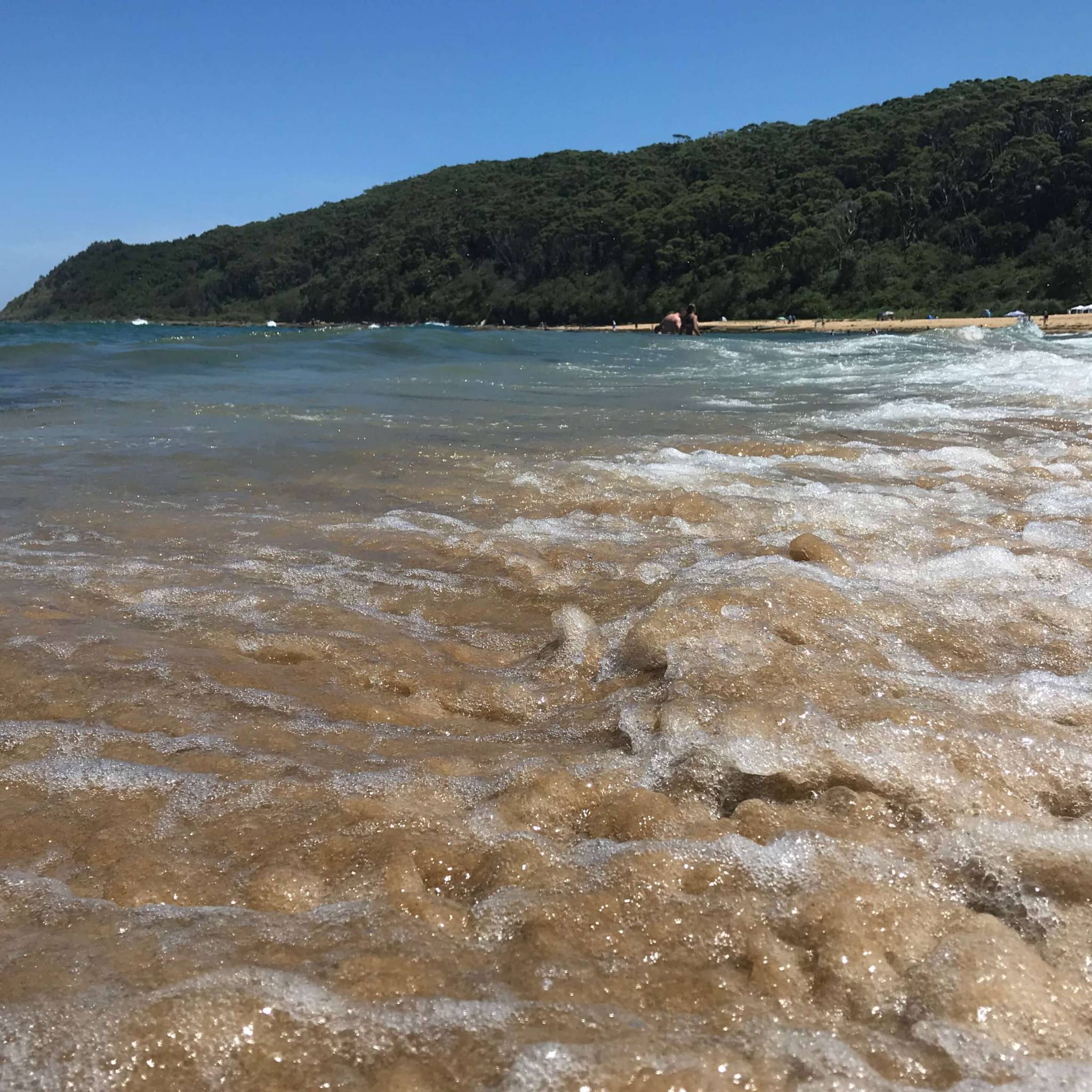






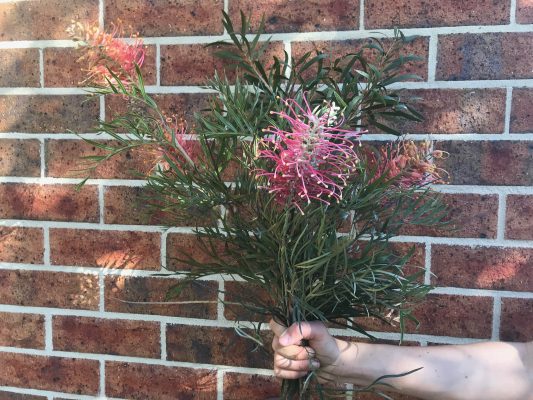
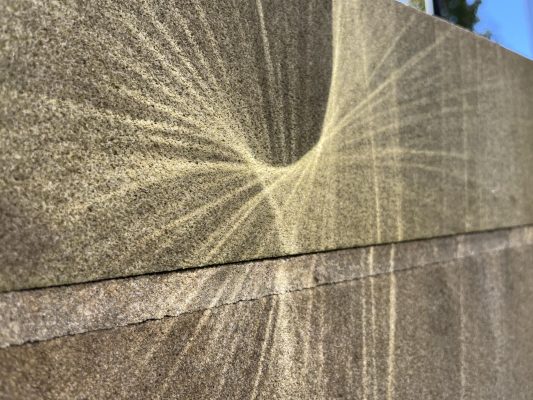
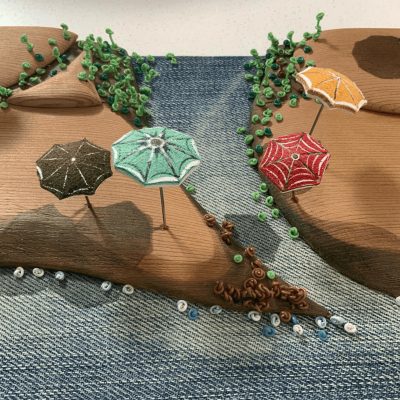
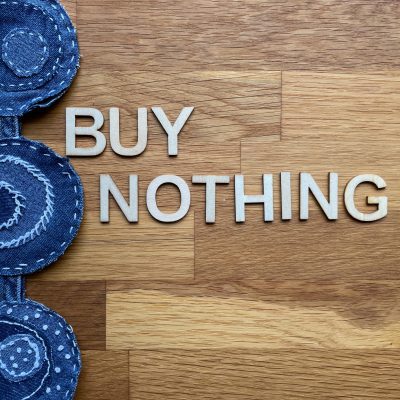
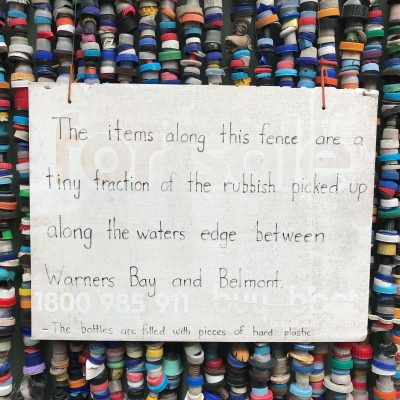
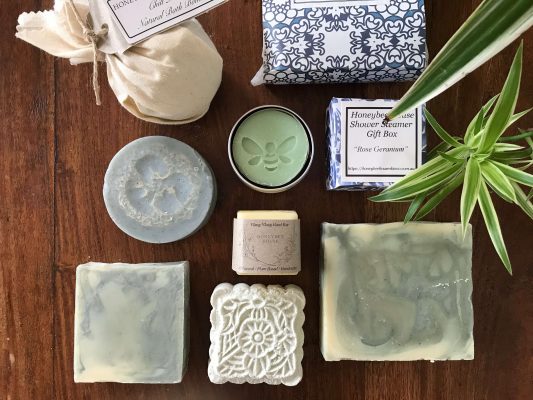
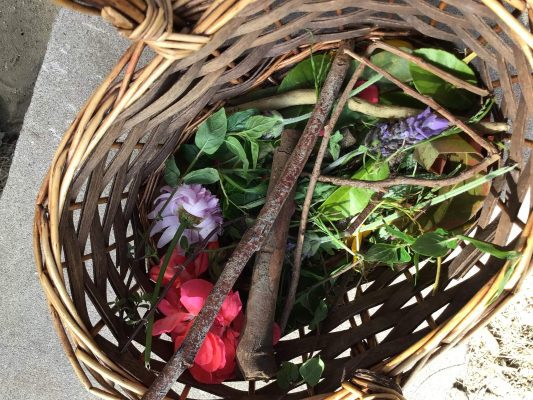
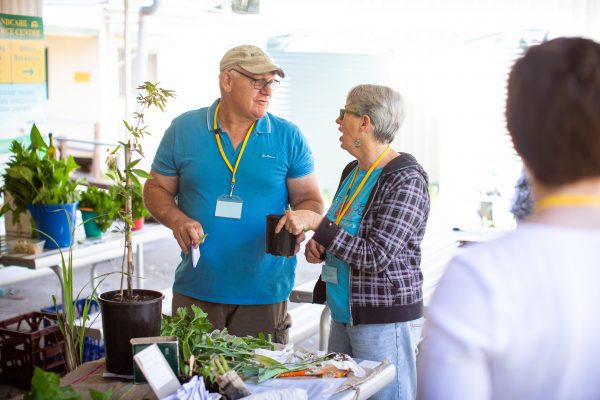
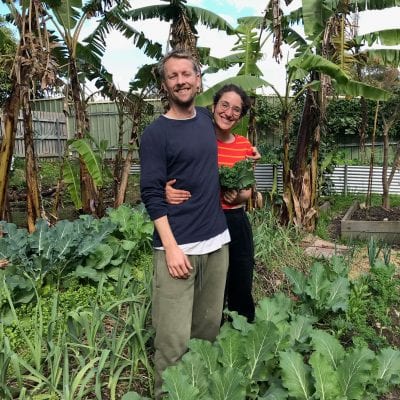
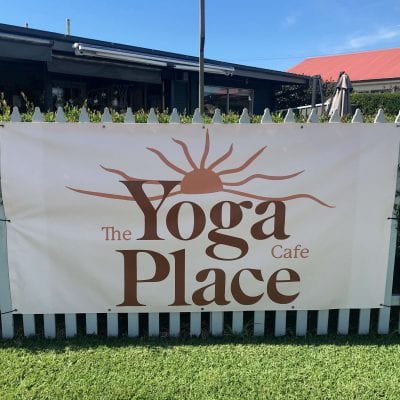
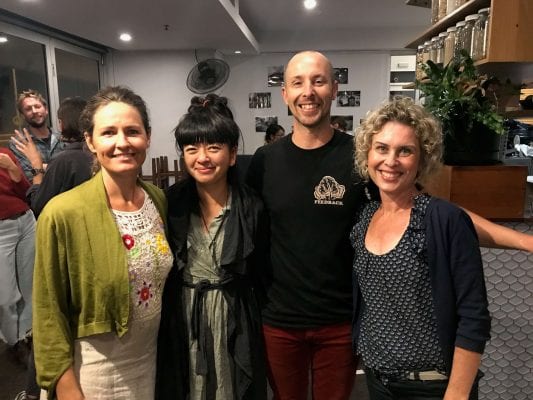
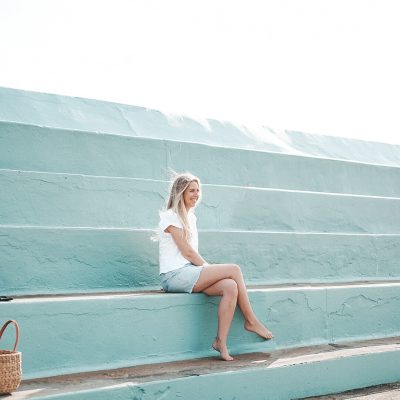
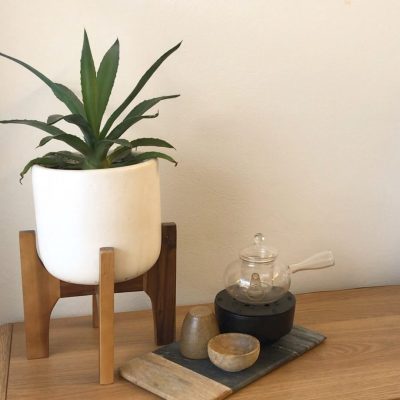
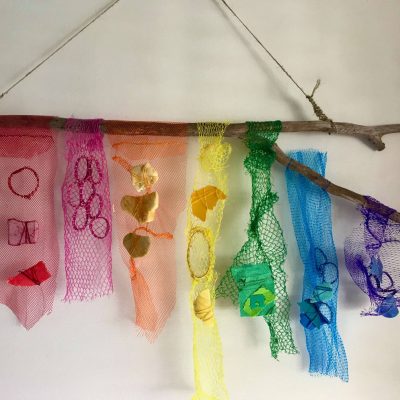
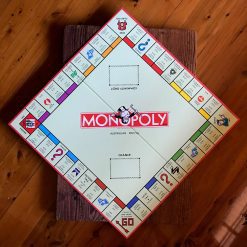

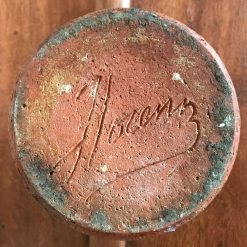
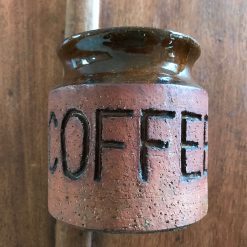
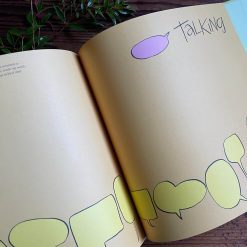
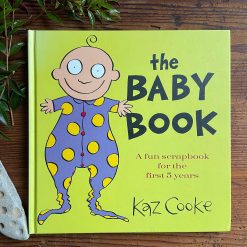
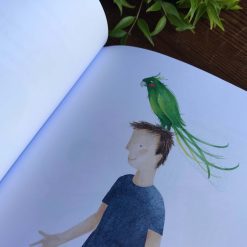
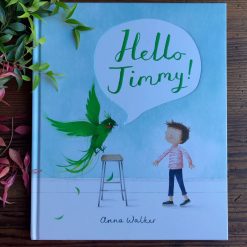


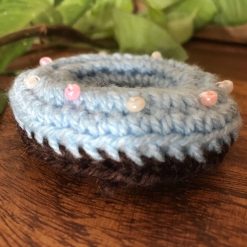
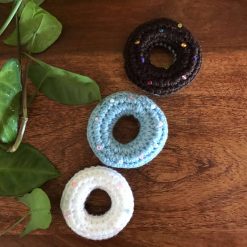
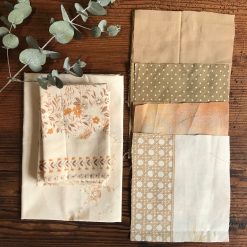
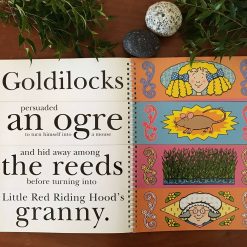
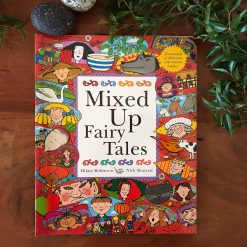
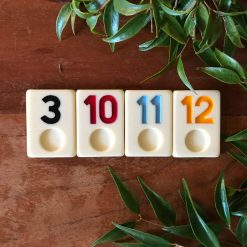
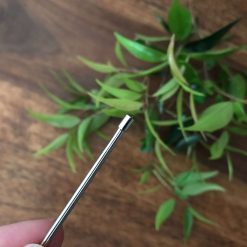
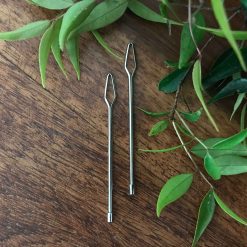
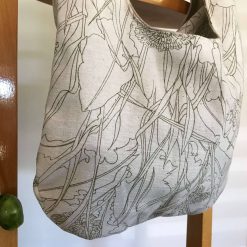
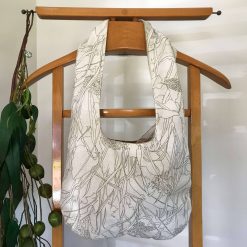
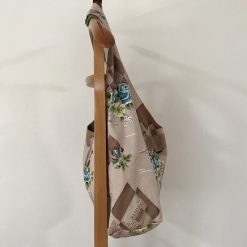
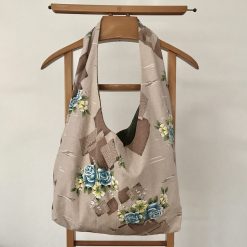
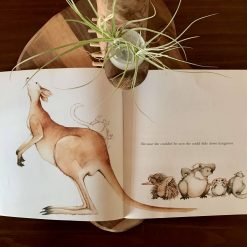
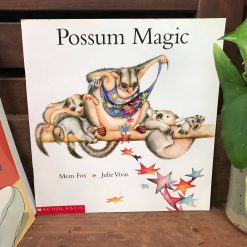
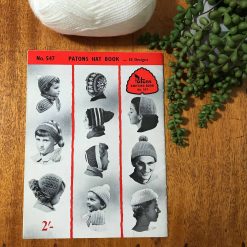
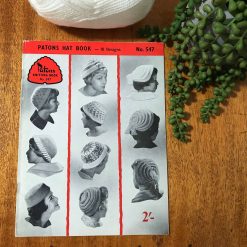
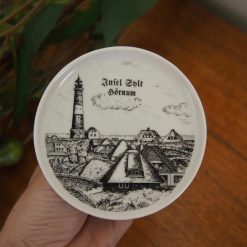
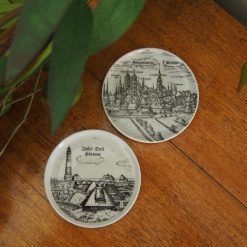
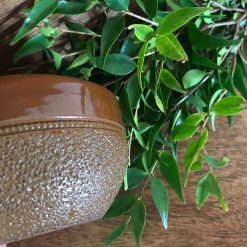
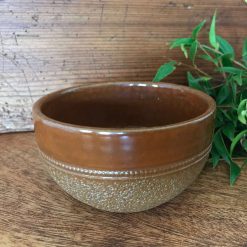
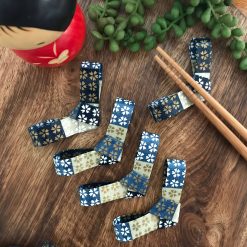
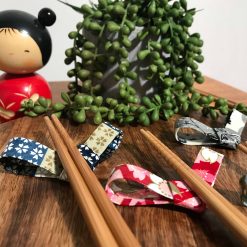
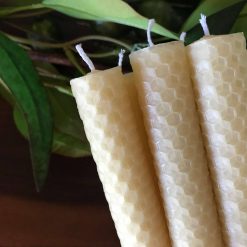
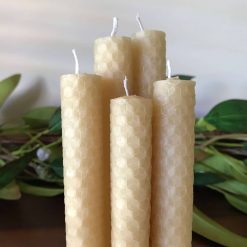
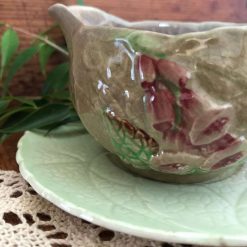
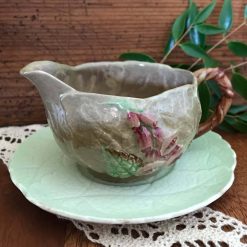
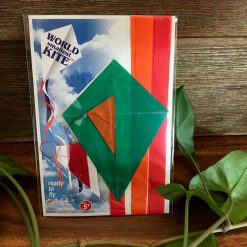
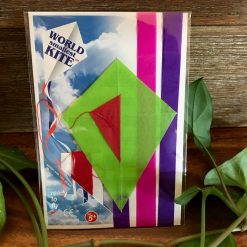
Leonie the legend! I love how her story shows how each person can make a big difference in our communities.
She really does love her community and takes great care in looking after the beach and bush environment.
We need more legends like Leonie!
Leonie is a legend… doing her bit for the beach and community she loves… 💚